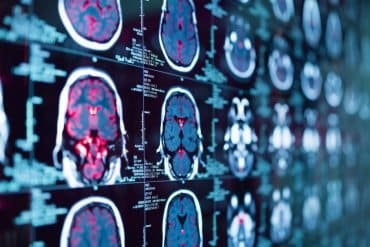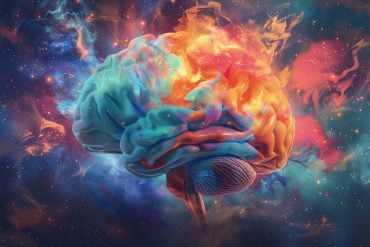Summary: Study reveals a significant number of COVID-19 survivors suffer from a range of neuropsychological and cognitive problems following recovery. Coronavirus survivors report experiencing PTSD, depression, memory impairments, and attention impairments upon recovery from the virus.
Source: Oxford Brookes University
A research review led by Oxford Brookes University has found a large proportion of COVID-19 survivors will be affected by neuropsychiatric and cognitive complications.
Psychologists at Oxford Brookes University and a psychiatrist from Oxford Health NHS Foundation Trust, evaluated published research papers in order to understand more about the possible effects of the SARS-COV-2 infection on the brain, and the extent people can expect to experience short and long-term mental health issues.
Patients experienced a range of psychiatric problems
The study found that in the short term, a wide range of neuropsychiatric problems were reported. In one examined study, 95% of clinically stable COVID-19 patients had post-traumatic stress disorder (PTSD) and other studies found between 17-42%* of patients experienced affective disorders, such as depression.
The main short-term cognitive problems were found to be impaired attention (reported by 45% patients) and impaired memory (between 13-28% of patients).
In the long term, neuropsychiatric problems were mostly affective disorders and fatigue, as well as impaired attention (reported by 44% of patients) and memory (reported between 28-50% of patients).
Mental health disorders could have significant impact on NHS
Dr Sanjay Kumar, Senior Lecturer in Psychology at Oxford Brookes University said: “Understanding the neuropsychiatric and cognitive consequences of COVID-19 is important as millions of people have been affected by the virus, and many cases go undetected. These conditions affect people’s capacity to work effectively, drive, manage finances, make informed decisions and participate in daily family activities.
“If even just a fraction of patients experience neuropsychiatric complications, the impact on public health services could be significant.”
Academics say that there is likely to be an increase in patients with psychiatric and cognitive problems who were otherwise healthy prior to COVID-19 infection.

“Detailed cognitive evaluation and robust monitoring of patients should be considered in order to detect new neurological cases,” continues Dr Kumar.
“This will also enable health care providers to plan adequate health care and resources, and improve the quality of life for many COVID-19 survivors.
“These are emerging findings though, and we will learn much more as the research in the field progresses.”
Co-author Dr Tina Malhotra, Consultant Psychiatrist working in Oxford Health NHS Foundation Trust said: “We are already seeing an impact of COVID -19 on mental health. Patients are presenting with Long COVID syndrome which includes fatigue, cognitive problems and a range of psychiatric problems.
“It is estimated that these problems are experienced by 1 in 5 people who have had COVID. Management of such patients in long-covid clinics should involve a multidisciplinary team including psychiatrists.
“NHS England has set out a recovery plan which includes setting up long covid clinics.”
About this coronavirus research news
Source: Oxford Brookes University
Contact: Natalie Gidley – Oxford Brookes University
Image: The image is in the public domain
Original Research: Open access.
“Neuropsychiatric and Cognitive Sequelae of COVID-19” by Sanjay Kumar et al. Frontiers in Psychology
Abstract
Neuropsychiatric and Cognitive Sequelae of COVID-19
Coronavirus disease 2019 (COVID-19) is likely to have long-term mental health effects on individuals who have recovered from COVID-19. Rightly, there is a global response for recognition and planning on how to deal with mental health problems for everyone impacted by the global pandemic. This does not just include COVID-19 patients but the general public and health care workers as well. There is also a need to understand the role of the virus itself in the pathophysiology of mental health disorders and longer-term mental health sequelae.
Emerging evidence suggests that COVID-19 patients develop neurological symptoms such as headache, altered consciousness, and paraesthesia. Brain tissue oedema and partial neurodegeneration have also been observed in an autopsy. In addition, there are reports that the virus has the potential to cause nervous system damage.
Together, these findings point to a possible role of the virus in the development of acute psychiatric symptoms and long-term neuropsychiatric sequelae of COVID-19. The brain pathologies associated with COVID-19 infection is likely to have a long-term impact on cognitive processes. Evidence from other viral respiratory infections, such as severe acute respiratory syndrome (SARS), suggests a potential development of psychiatric disorders, long-term neuropsychiatric disorders, and cognitive problems.
In this paper, we will review and evaluate the available evidence of acute and possible long-term neuropsychiatric manifestations of COVID-19. We will discuss possible pathophysiological mechanisms and the implications this will have on preparing a long-term strategy to monitor and manage such patients.







